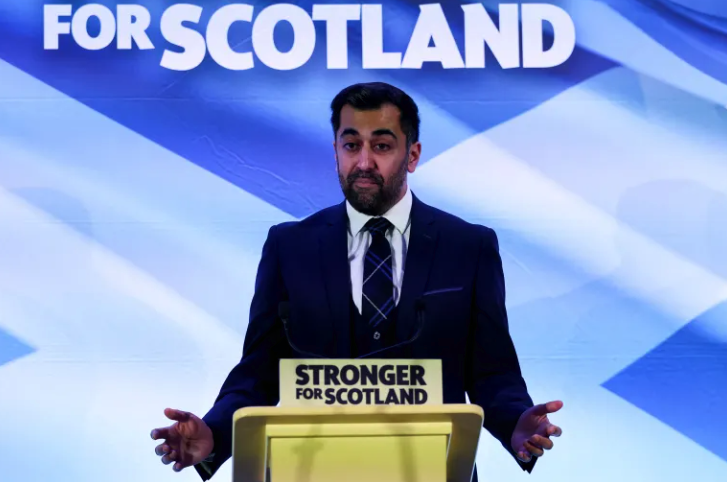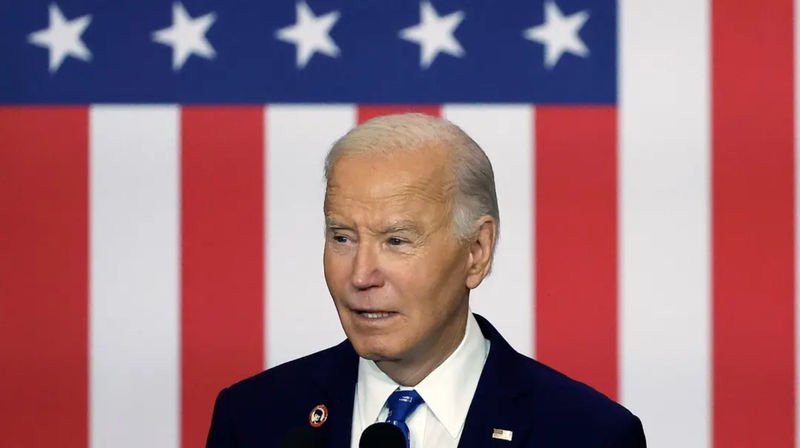Scotland: Ruling SNP Selects Humza Yousaf to Replace Nicola Sturgeon
Humza Yousaf was named the leader of the Scottish Nationalist Party (SNP) on Monday, winning 52% of the vote in a tight, three-way leadership race. He will replace Nicola Sturgeon who announced her resignation last month.

Facts
- Humza Yousaf was named the leader of the Scottish Nationalist Party (SNP) on Monday, winning 52% of the vote in a tight, three-way leadership race. He will replace Nicola Sturgeon who announced her resignation last month, and is likely to become the youngest Scottish first minister and first Muslim to lead the country.1
- Though he has not yet been made first minister, Yousaf's trajectory has become a near certainty since he also garnered the support of the Scottish Greens on Tuesday. Scotland's Green Party had previously announced their intention to leave the coalition if his main rival Kate Forbes had defeated him.2
- Yousaf — who has previously served as a minister for the departments of justice, transport, and health — has expressed a "passion" for Scottish independence, saying he hopes to deliver it to the people of Scotland as soon as possible.3
- Among his campaign promises, he vowed to ask Westminster for another Scottish independence referendum, despite PM Rishi Sunak having already rejected a similar request. He also pledged to challenge the blocking of Scotland's Gender Recognition Reform Bill which, if implemented, would cut the current waiting time for those seeking to legally change their gender.4
- The 37-year-old Member of Scottish Parliament (MSP) for Glasgow Pollok, who was born to a Pakistani father and a Kenyan mother, first entered Holyrood in 2011, at which point he was the youngest serving MSP. A year later, he became the first non-white and the first Muslim minister for Scotland.5
- The SNP has seen its membership drop from 104K to 72K since December 2021, amid growing internal divisions over policy. Monday's was the first party leadership vote since 2004, as Sturgeon was elected unopposed to replace her predecessor Alex Salmond in 2014.2
Sources: 1Washington Post, 2Guardian, 3Al Jazeera, 4Times, and 5Sky News.
Narratives
- Narrative A, as provided by Guardian. Having achieved the accolade of becoming the first Muslim to lead a country in Western Europe, Yousaf must now turn his attention to uniting the SNP as he seeks to shake up the debate around Scottish independence and deepen Scotland's ties with the EU. While he is yet to prove his ability to bring together a disparate SNP, he was the best candidate in this race and the most likely politician to succeed in uniting his party, as he plans to stick with Sturgeon's progressive agenda and serve the people's interests.
- Narrative B, as provided by The Telegraph. Humza Yousaf won because he is an establishment Scottish politician as well as a peddler of woke policy ideas, but his narrow victory proves that he is relatively weak compared to his predecessor and will likely struggle to focus his ministers, or the SNP at large, on a collective policy manifesto. Nevertheless, given the series of unexpected events in British politics in recent years, unionists cannot be complacent or risk underestimating him — close attention must be paid to the SNP's continued pursuit of Scottish independence.






